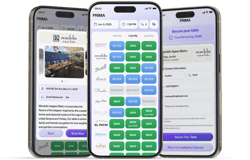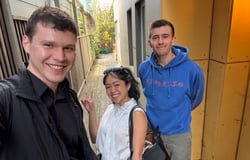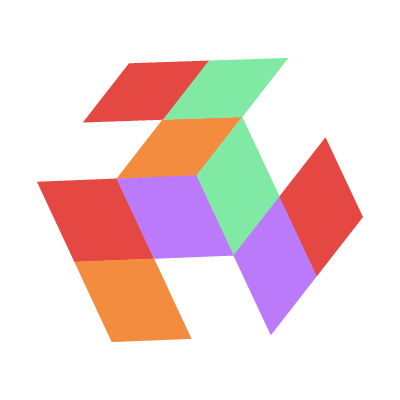Location:
Fremont, California (on-site)
Trondheim, Norway (on-site)
Two positions available: one in each location.
Eligibility Requirement for U.S. Position: Candidates must be authorized to work in the U.S.
About Us
Freshly backed by some of the top VCs in Silicon Valley, T-robotics is redefining robotics by combining advanced AI for intuitive programming with pre-trained skill models that are experts at industrial tasks. With offices in San Francisco (USA) and Trondheim (Norway), we provide software that gives our users unprecedented ease-of-use and capabilities for their robots, allowing them to think, adapt, and perform complex tasks like any skilled worker.
About the Job
We are seeking a Software-Focused Integration Engineer to join our robotics team and play a critical role in developing and deploying the software infrastructure that powers our robotic systems. You will be responsible for integrating sensors, peripherals, and control systems through robust software solutions, enabling seamless communication between hardware components and our AI-driven robotics platform.
Responsibilities
Design and implement software integration strategies for robotic systems including sensor suites, cameras, and peripheral devices
Develop and maintain drivers and interfaces for various peripherals (machine tools, conveyor systems, sensors, PLCs, etc.)
Integrate and calibrate our vision systems into robotic workflows
Setup robot workcells and conduct software validation testing
Create reusable frameworks for system integration
Provide technical documentation and support for software integration processes
Troubleshoot and resolve software integration issues and performance bottlenecks
Requirements
Master's degree in Computer Science, Robotics, Electrical Engineering or related field; OR Bachelor's degree with 2+ years of post-graduation professional experience in robotics software integration
Proficiency in C++/Python and ROS2
Experience working with industrial robots or collaborative robots from manufacturers such as ABB, Fanuc, KUKA, Universal Robots, or similar
Proven track record of integrating sensors and peripherals into robotic systems
Experience with industrial communication protocols (Ethernet/IP, Modbus, OPC-UA)
Strong problem-solving skills and ability to debug complex software-hardware interactions
Excellent communication and documentation skills
What Will Differentiate You
Experience writing low-level drivers and firmware for robotic peripherals
Knowledge of machine vision algorithms and computer vision libraries
Experience with motion and path planning libraries for industrial robot arms
Experience with containerization (Docker) and deployment tools
Proficiency with CAD/CAM software for robotic cell design and offline programming
What We Offer
A unique opportunity to work at the forefront of robotics and AI
A central role in a growing startup where your contributions will directly shape our future
Competitive salary, employee equity, and bonuses
A dynamic and international work environment with offices in the US and Norway
Top Skills

What We Do
T-ROBOTICS is a pioneering AI-driven robotics software company, headquartered in Silicon Valley, USA, and Trondheim, Norway. The company is redefining automation with built-in robotic intelligence, empowering industries to achieve unprecedented flexibility, adaptability, and autonomy in robotic operations.
Built on over a decade of ground-breaking research and development, T-ROBOTICS fundamentally reimagines how robots are programmed. Traditional “point-to-point” programming — the industrial standard since the 1960s — is slow, rigid, and fragile. T-ROBOTICS replaces it with ActGPT, an AI-powered platform with pre-trained skills for industrial robots, delivering effortless automation adoption and execution with zero learning curve.
By combining generative AI, computer vision, and adaptive control, ActGPT enables robots to understand context, plan intelligently, and execute complex industrial tasks autonomously — from machining and assembly to inspection and material handling. This shift empowers manufacturers to scale automation faster, reduce downtime, and achieve continuous improvement without reliance on expert programmers.







